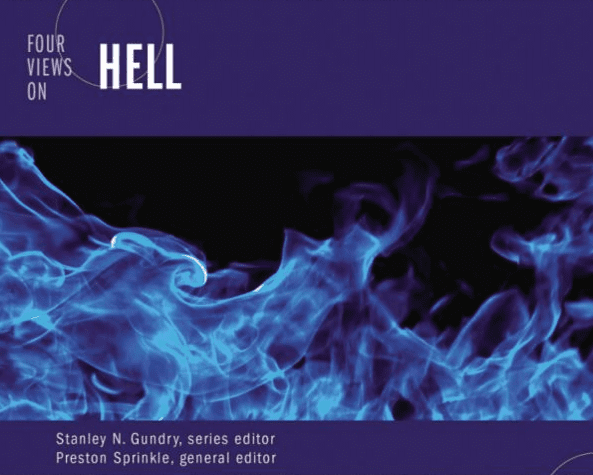“Christian universalism is the view that in the end God will reconcile all people to himself through Christ,” is Robin A. Parry’s opening sentence. Parry sets out to convince the reader in the rest of his essay in Four Views on Hell that “What makes universalism universal is simply the insistence that ‘God will reconcile all people.’”
Parry assures the reader that the universalist view is not some new liberal concept, but was supported by numerous Early Church Fathers that include Origen, Clement of Alexandria, Eusebius, Athanasius, Basil of Caesarea, early Jerome and early Augustine. Simply, universalism is an ancient view.
What I appreciate about Parry’s essay is not only his arguments for God’s intent to reconcile “all things” to himself, but his engagement with the “tricky texts” that seem (in his view) to deny universalism. I didn’t see Burk in his ECT essay engage the universalism texts. Burk does, however, in his responses to Parry.
Having twice carefully read Parry’s essay, I have to agree with Stackhouse that universalism “is the triumph of hope over exegesis.” Why would Stackhouse write that?
Parry sets about to establish “the context of the Christ-centered Biblical Narrative” into which he will situate hell. Within this sweeping narrative based on the proof text of Romans 11:36, Parry constructs a grand story in which God’s love wins in the end over the punishment of the wicked. Noting an Old Testament pattern of first judgment and then restoration, Parry reads that same pattern into the critical texts of Revelation 14 and 20. Parry does not deny hell or punishment in it, but views all punishment as both retributive and restorative. With his narrative theme, then, Parry can exegete a tricky text like Mark 9:42-50 in a clever way by determining that the meaning of “salted by fire” means purified for heaven. There’s the rub. Walls writes, “…but his [Parry’s] focus on the big picture allowed him to make the case that these texts [that don’t support universalism] can plausibly be read differently from how they usually have been read (141).
Both Stackhouse and Walls push back on Parry’s understanding of free will. Why does this issue come up? Because universalism has determinism in it as surely as does double-predestinarian Calvinism. If God’s eternal purpose is to reconcile all things, including all people, to himself, then ultimately humans do not have free will. Parry’s illustration of the psychology of a boy not putting his hand into a fire is summarily dismantled and dismissed by Stackhouse and Walls. The appeal to rationalism as a basis for all humans to freely choose salvation presents a problem. “It is this psychological deficiency in universalism that I honestly don’t understand,” Stackhouse writes, “[the stories of the Bible] warn that sinners aren’t logical” (138).
Universalism is a view that all people wish would be true. Love wins. Yet, when pressed against all the biblical texts concerning hell, a hopeful metanarrative does not cancel out the exegetical and theological realities of either ECT or Terminal Punishment.












